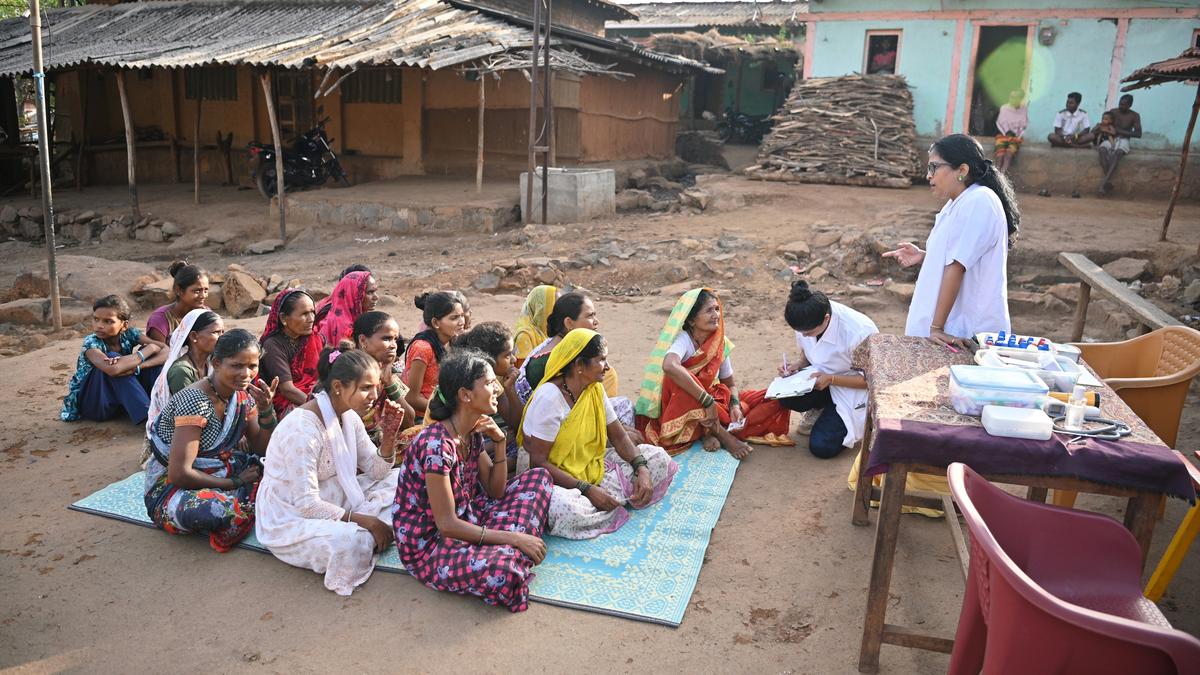Community projects provide students with an avenue to engage directly with societal issues such as literacy gaps, health awareness, and environmental sustainability
| Photo Credit: Getty Images/iStockPhoto
Community-based projects driven by universities are a powerful blend of education and social impact, creating ripples that empower individuals and uplift entire societies. These initiatives serve as transformative platforms where academic knowledge meets real-world application, offering students practical learning opportunities while addressing pressing local challenges, thereby bridging the gap between theoretical knowledge and practical application. Community projects provide students with an avenue to engage directly with societal issues such as literacy gaps, health awareness, and environmental sustainability.
For example, literacy programmes led by students not only enhance reading and writing skills in underprivileged communities but also cultivate a sense of purpose among the volunteers. Similarly, health drives addressing local issues like malnutrition or sanitation teach students about public health systems while directly benefiting the community. These hands-on experiences develop critical thinking, problem-solving, and leadership skills, equipping students for professional success while fostering empathy and social responsibility.
Catalyst for growth
Community projects are often catalysts for economic growth, introducing sustainable and scalable solutions that transform local economies. Initiatives such as skill development workshops, vocational training, and small business support empower individuals with tools to enhance their livelihoods.
For instance, training programmes in crafts or technology enable participants to generate income while preserving traditional knowledge or adopting modern practices. By involving students in such initiatives, colleges create a dual impact: communities gain access to innovative ideas and resources, while students gain exposure to entrepreneurship and grassroots development.
The intersection of community projects and sustainability drives meaningful progress. Universities often emphasise eco-friendly practices, promoting green technologies and resource-efficient solutions in rural and urban settings. Projects such as water conservation drives, waste management systems, and afforestation campaigns not only address environmental challenges but also create awareness among students and residents alike. This holistic approach ensures long-term benefits for both society and the environment, reinforcing the idea that education is a tool for enduring positive change.
The synergy between education and community development fosters mutual growth. Communities benefit from access to resources, knowledge, and innovative solutions, while students gain experiential learning that prepares them for real-world challenges. Moreover, these initiatives instill a sense of purpose in students, encouraging them to view education as a means of contributing to the greater good. Such a mindset extends beyond individual achievements, inspiring students to become change-makers in their professional and personal lives.
Community projects create a ripple effect, with each initiative leading to wider-reaching impacts. Education leads to empowerment; empowerment leads to economic growth; economic growth drives social progress. By integrating community projects into academic programmes, universities can show how education can be a force for holistic development, bridging societal divides and laying the groundwork for a brighter, more equitable future. This collaborative model underscores the profound impact of aligning education with community service, proving that when institutions and communities work together, they create ripples of progress that benefit all.
The writer is the Chief Growth and Strategy Officer at Mohan Babu University
Published – March 09, 2025 03:30 pm IST
